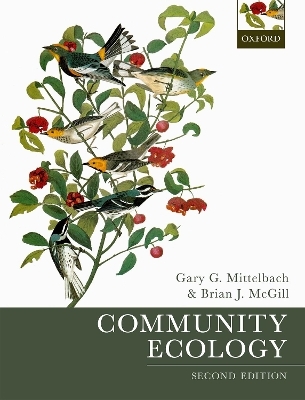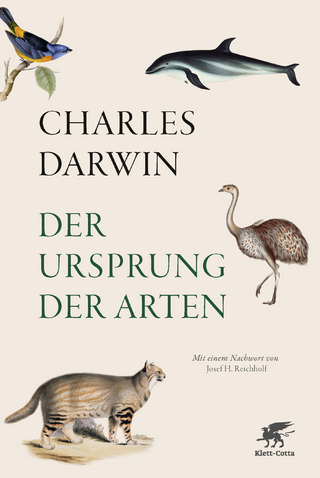
Community Ecology
Oxford University Press (Verlag)
978-0-19-883586-8 (ISBN)
Community ecology has undergone a transformation in recent years, from a discipline largely focused on processes occurring within a local area to a discipline encompassing a much richer domain of study, including the linkages between communities separated in space (metacommunity dynamics), niche and neutral theory, the interplay between ecology and evolution (eco-evolutionary dynamics), and the influence of historical and regional processes in shaping patterns of biodiversity. To fully understand these new developments, however, students continue to need a strong foundation in the study of species interactions and how these interactions are assembled into food webs and other ecological networks. This new edition fulfils the book's original aims, both as a much-needed up-to-date and accessible introduction to modern community ecology, and in identifying the important questions that are yet to be answered. This research-driven textbook introduces state-of-the-art community ecology to a new generation of students, adopting reasoned and balanced perspectives on as-yet-unresolved issues.
Community Ecology is suitable for advanced undergraduates, graduate students, and researchers seeking a broad, up-to-date coverage of ecological concepts at the community level.
Gary G. Mittelbach is Professor Emeritus at the Kellogg Biological Station and the Department of Integrative Biology at Michigan State University. He graduated with a B.A. from the University of Iowa (1974) and earned his Ph.D. at Michigan State University (1980). Dr. Mittelbach's research focuses on the evolution and maintenance of biodiversity, with research ranging from experimental studies of fish populations in local lakes to theoretical analyses of global patterns of species diversity. He is an elected Fellow of the Ecological Society of America, an original member of ISI's Highly Cited Researchers, and is the recipient of Michigan State's College of Natural Science Outstanding Faculty Award and the University's W. J. Beal Outstanding Faculty Award. Brian J. McGill is a Professor at the University of Maine in the School of Biology and Ecology and the Mitchell Center for Sustainability Solutions. He graduated with a B.A. in mathematics from Harvard University (1988) and, after working in the information technology industry for 9 years, earned his PhD from the University of Arizona (2003). His work focuses on how human-caused global change is impacting biodiversity. His work also focus on large scales and ecoinformatics approaches. He is Editor-in-Chief of the journal Global Ecology and Biogeography.
1: Community ecology's roots
Part I
The Big Picture: patterns, causes, and consequences of biodiversity
2: Patterns of biological diversity
3: Biodiversity and ecosystem functioning
Part II
The Nitty-Gritty: species interactions in simple modules
4: Population growth and density dependence
5: The fundamentals of predator-prey interactions
6: Selective predators and responsive prey
7: The fundamentals of competitive interactions
8: Species coexistence and niche theory
9: Beneficial interactions in communities: Mutualism and facilitation
Part III
Putting the Pieces Together: food webs, ecological networks and community assembly
10: Species interactions in ecological networks
11: Food chains and food webs: Controlling factors and cascading effects
12: Community assembly and species traits
Part IV
Patial Ecology: metapopulations and metacommunities
13: Patchy environments, metapopulations and fugitive species
14: Metacommunities
Part V
Species in Changing Environments: ecology and evolution
15: Species in variable environments
16: Evolutionary community ecology
17: Some concluding remarks and a look ahead
| Erscheinungsdatum | 07.06.2019 |
|---|---|
| Verlagsort | Oxford |
| Sprache | englisch |
| Maße | 188 x 246 mm |
| Gewicht | 938 g |
| Themenwelt | Naturwissenschaften ► Biologie ► Evolution |
| Naturwissenschaften ► Biologie ► Ökologie / Naturschutz | |
| ISBN-10 | 0-19-883586-8 / 0198835868 |
| ISBN-13 | 978-0-19-883586-8 / 9780198835868 |
| Zustand | Neuware |
| Informationen gemäß Produktsicherheitsverordnung (GPSR) | |
| Haben Sie eine Frage zum Produkt? |
aus dem Bereich


